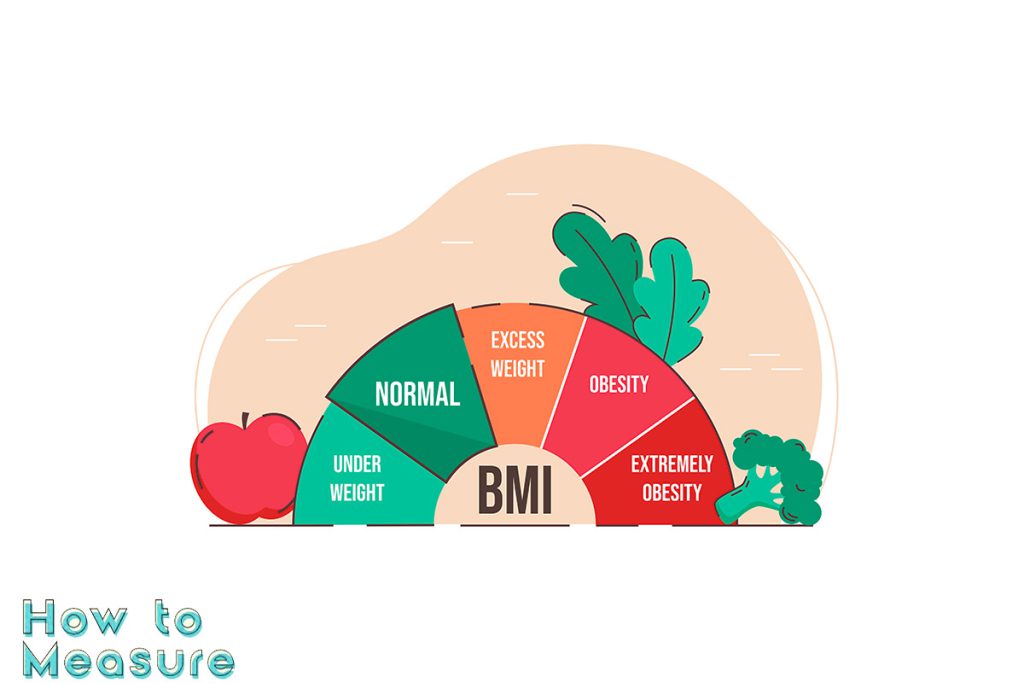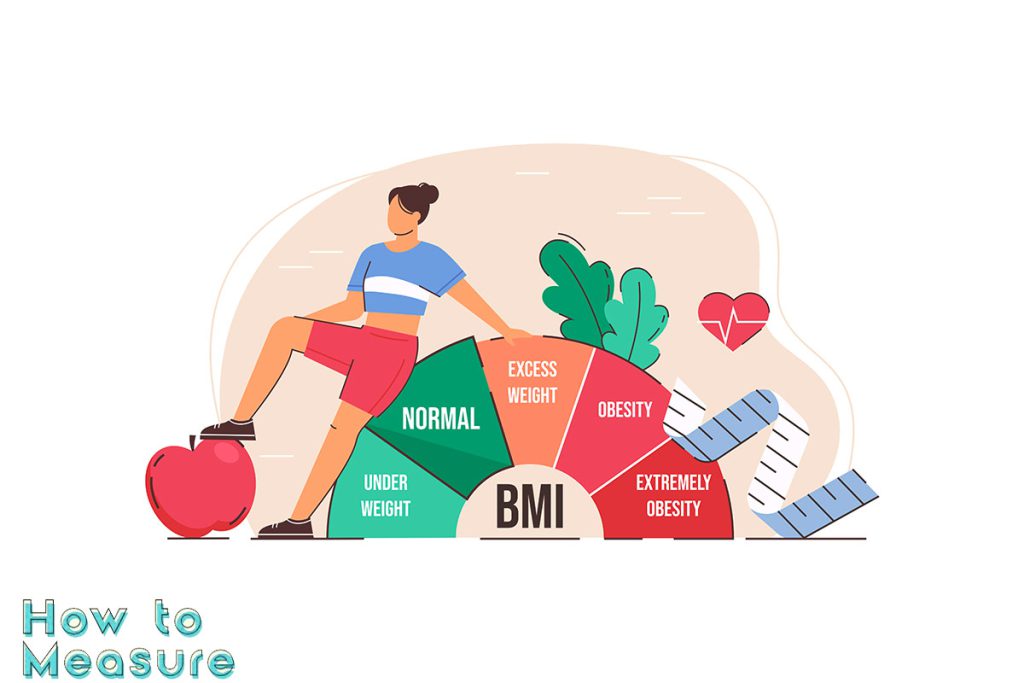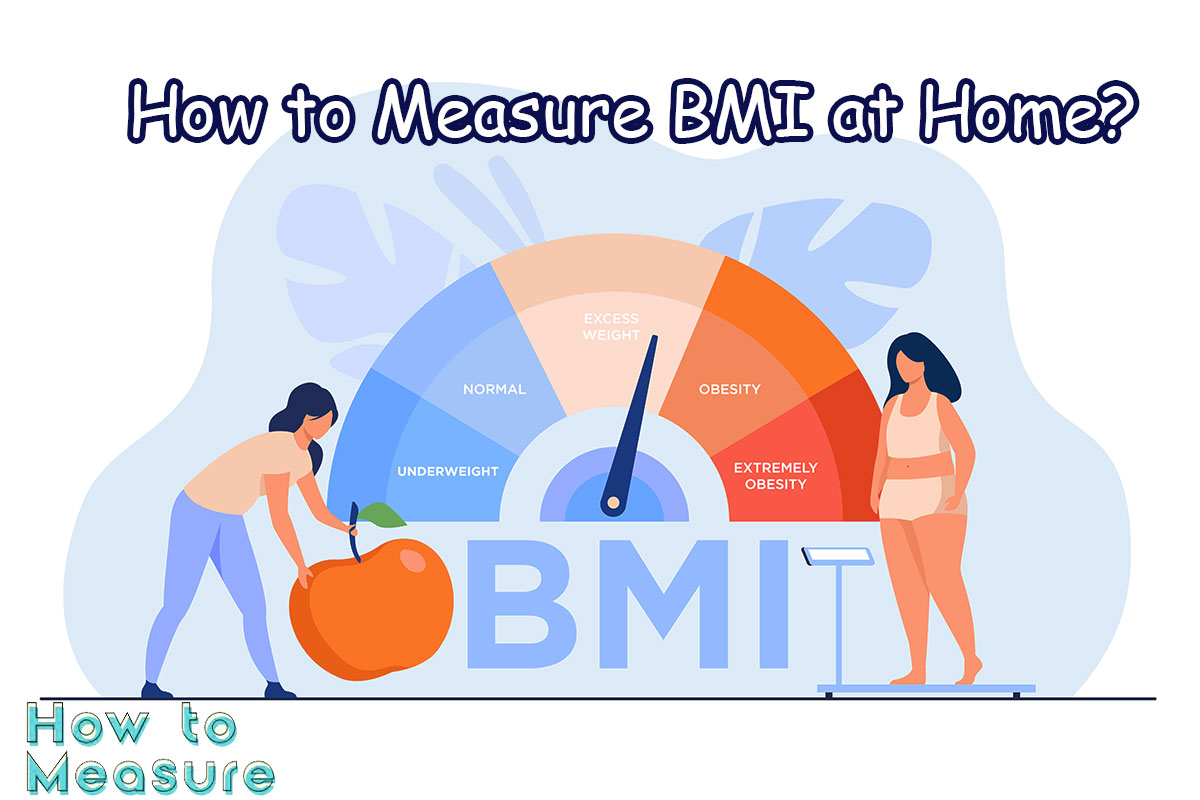Maintaining a healthy weight is essential for your overall health and well-being. Knowing your body mass index (BMI) is a great way to monitor your weight and determine if you are at a healthy weight. Measuring your BMI at home is a simple and cost-effective way to track your health. In this article, we will discuss how to measure your BMI at home, including how to calculate your BMI, interpret the results, and understand the benefits and risks of measuring your BMI at home. In the essay we in How to measure will talk more about this topic.
What is BMI?
BMI stands for Body Mass Index and measures body fat based on height and weight. It assesses whether a person is underweight, average, overweight, or obese. BMI is calculated by dividing a person’s weight in kilograms by their height in meters squared. For example, a person who is 1.8 meters tall and weighs 70 kilograms would have a BMI of 21.6. BMI is a helpful tool for assessing health risks, as people with higher BMIs are more likely to suffer from chronic diseases such as diabetes, heart disease, and certain types of cancer. Knowing your BMI can help you make informed decisions about your health and lifestyle.
Calculating BMI at Home
Measuring Body Mass Index (BMI) at home is a simple and convenient way to assess your overall health. Knowing your BMI can help you determine if you are at a healthy weight and can help you take steps to improve your health. To calculate your BMI at home, you must measure your body weight and height.
Measuring Body Weight
The first step in calculating your BMI at home is to measure your body weight. To do this, you will need a reliable bathroom scale. Place the scale on a flat, even surface and stand on it with both feet. Make sure to stand still and keep your arms at your sides. Once you have taken your weight, record it in pounds or kilograms. Measuring body weight is an essential step in calculating BMI at home. To accurately measure body weight, you should use a calibrated bathroom scale that can measure in kilograms or pounds. Make sure the scale is on a flat, even surface and that you are wearing minimal clothing.

Step onto the scale and stand still until the reading is complete. Write down the reading in kilograms or pounds, depending on the scale’s measurement. When measuring body weight, it is essential to remember that weight can fluctuate throughout the day, so it is best to measure at the same time each day for the most accurate results.
Read more: How to Measure BMI For a Male?
Measuring Body Height
Measuring body height is an essential step in calculating BMI at home. It is vital to ensure the measurements are taken accurately for an accurate BMI result. You will need a measuring tape or a yardstick to measure body height. Stand with your feet together and your back against a wall. Place the measuring tape or yardstick on the wall at the top of your head and mark the measurement. Using a yardstick, measure the distance from the floor to the mark. If using a measuring tape, record the measurement. It is important to note that body height should be measured in centimeters for accurate BMI results.
Calculating BMI
To calculate your BMI at home, you must measure your body weight and height. You can use a digital scale or a balance beam scale to measure your body weight. You can use a measuring tape or a stadiometer to measure your body height. Once you have both measurements, you can use an online BMI calculator to calculate your BMI. Alternatively, you can use the following formula: BMI = (weight in kilograms) / (height in meters squared). For example, if your weight is 70 kilograms and your height is 1.7 meters, your BMI would be 24.2. Once you have measured your body weight and height, you can calculate your BMI. To do this, divide your weight in kilograms by your height in meters squared. For example, if you weigh 70 kilograms and are 1.7 meters tall, your BMI would be 70 divided by (1.7 x 1.7), which equals 24.2.
Interpreting BMI Results
Once you have calculated your BMI, you can interpret the results. A BMI of 18.5 to 24.9 is considered healthy, while a BMI of 25 to 29.9 is considered overweight. A BMI of 30 or higher is considered obese. Knowing your BMI is an integral part of understanding your overall health. The World Health Organization (WHO) has established a standard range for BMI, which is used to classify individuals as underweight, average weight, overweight, or obese. A BMI of 18.5 or less is considered underweight, 18.5 to 24.9 is considered average weight, 25 to 29.9 is considered overweight, and 30 or higher is considered obese. It is important to note that BMI does not consider muscle mass, so athletes or people with a lot of muscle may have a higher BMI than average. Additionally, BMI does not distinguish between fat and muscle, so people with a lot of muscle may be incorrectly classified as overweight or obese. Therefore, it is essential to consider other factors when interpreting BMI results.
Benefits of Knowing Your BMI
Knowing your BMI can help you determine if you are at a healthy weight and can help you take steps to improve your health. It can also help you set realistic goals for weight loss or gain. Knowing your BMI can be beneficial in many ways. It can help you identify if you are at a healthy weight or need to change your lifestyle to reach a healthier weight. It can also help you to understand the impact of your diet and exercise habits on your overall health.

Additionally, it can help you set realistic weight loss or gain goals and monitor your progress. Knowing your BMI can also help you identify any underlying health issues contributing to your weight. Finally, it can help you make informed decisions about your diet and exercise habits and any potential medical treatments. By understanding your BMI, you can ensure that you take the necessary steps to maintain a healthy weight and lifestyle.
Risks of Measuring BMI at Home
Measuring your BMI at home can be convenient, but it is important to note that it is only sometimes accurate. Muscle mass, body fat, and bone density can affect your BMI and should be considered when interpreting your results. Measuring BMI at home can be convenient but carries certain risks. For one, if the measurements are not taken correctly, the results may not be accurate. Additionally, you need to understand the implications of the BMI results to make the best decisions for your health. Furthermore, you need access to professional medical advice to be able to interpret the results correctly. Finally, if you rely solely on BMI to assess your health, you may miss out on other vital factors affecting your overall well-being.
Read more: How to Measure BMI for Female?
Tips for Accurate BMI Measurement
To ensure accurate BMI measurement at home, using a reliable bathroom scale and measuring your height correctly is essential. Additionally, it is crucial to consider factors such as muscle mass, body fat, and bone density when interpreting your results.
- Use a reliable scale when measuring body weight. Ensure it is calibrated properly and can accurately measure up to the nearest 0.1 kg.
- Use a measuring tape to measure body height. Ensure it is long enough to measure from the floor to the top of the head.
- Calculate BMI using the formula: BMI = weight (kg) / height (m)2.
- Use the same units for weight and height when calculating BMI.
- Round off the BMI result to the nearest 0.1 kg/m2.
- Compare the BMI result to the standard BMI ranges to interpret the result.
- Use the same measuring tools and techniques each time you measure BMI.
- Monitor changes in BMI over time to detect any significant changes.
- Seek professional advice if you need help measuring BMI at home.
Conclusion
In conclusion, measuring body mass index (BMI) at home is a straightforward way to accurately assess your body weight about your height. It involves a simple calculation that requires your weight and height measurements. The BMI is a critical measurement that helps you determine if you have a healthy weight, which is essential for maintaining optimal health and well-being. Several tools, including online calculators or mobile applications, can help you accurately calculate your BMI at home. However, it’s important to note that calculating your BMI alone is not enough to determine your overall health status. Other factors such as age, gender, muscle mass, and body fat percentage also play a significant role in maintaining a healthy weight. Therefore, consulting with a healthcare professional for a more comprehensive evaluation and advice on improving your overall health and well-being is essential.











